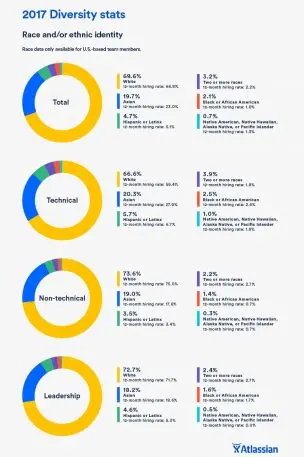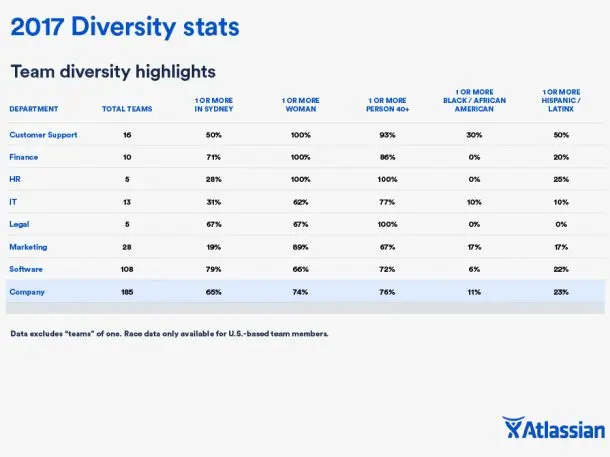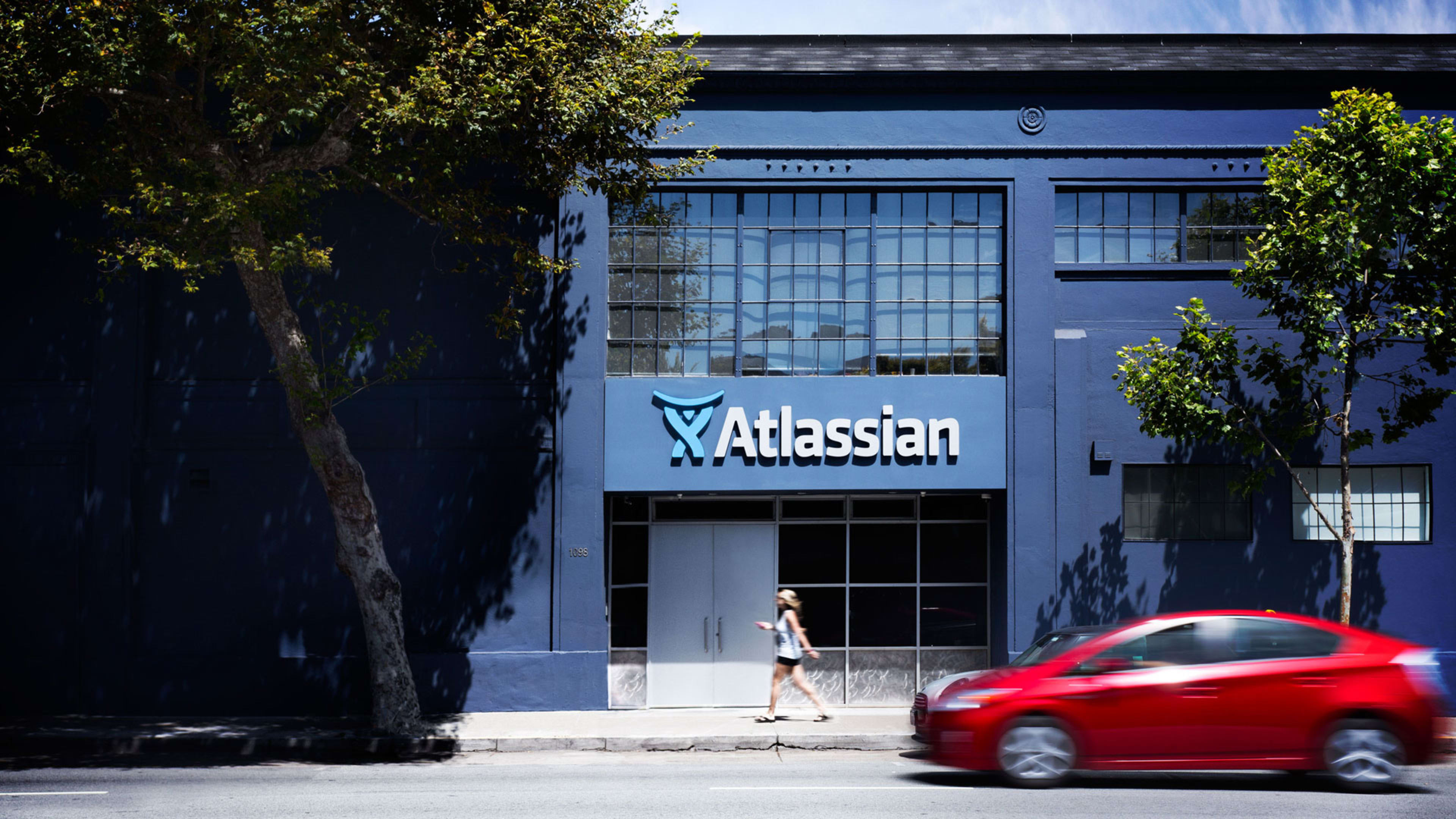Transparency is a tricky thing. It’s easy to shine a light on what you’re proud of when things are going great, and a lot harder to put on display anything that isn’t–especially when it comes to diversity and inclusion. To its credit, Atlassian just released a diversity report that isn’t all As.
Like other tech companies, the Australian enterprise software company has made incremental gains by hiring more underrepresented minorities, but it’s still got work to do as its global workforce of over 2,200 continues to grow. Unlike other tech companies, Atlassian isn’t shy about acknowledging that. Some choose not to report at all, even though delivering regular demographic snapshots (good or bad) can bring business benefits all on its own–if only to learn what’s working and what isn’t.
Related: These Entrepreneurs Are Done Waiting For Silicon Valley To Close The Racial Wealth Gap

Aubrey Blanche, Atlassian’s global head of diversity and inclusion, tells Fast Company that the number of underrepresented minorities hired into its more than 700-person U.S. workforce (the only country that counts race when parsing the numbers) fell over the past 12 months, from 13% to 10.2%. Blanche says candidly that it’s largely because priority wasn’t placed on hiring those candidates as the company grew.
Underrepresented minorities in tech roles did increase to 13.1%. Over one-third (32%) of all new hires since last August were women, including 36% in leadership roles. And the share of staff over 40 years old went from 11% to 15.7%.
What’s different about Atlassian’s report is that it focuses on its team composition, not overall employee numbers. While that team-level data looks promising at first glance (100% of teams in customer support, finance, and IT have at least one woman), Blanche admits that simply having one person from an underrepresented minority group on a team of mostly white males doesn’t equal inclusion.
“We realized we need to develop a stronger signal of belonging, and that needs to happen at the team level,” she says. “Team-level reporting suggested the experience of belonging is a great predictor of success.”

To make staff feel like they belong, Blanche says Atlassian is focusing on teams’ “cognitive diversity”–not just gender, race, age, etc., but difference of experiences and ideas–which she admits is “really hard to measure because of the number of ways individuals can be different.”
But in order for all these cognitive and other differences to make a positive impact, she maintains that companies and individual employees need a shared set of values. That’s why Atlassian assesses candidates for “values fit” rather than culture fit, which Blanche notes can be riddled with unconscious bias. “Lots of research finds that behavioral interviewing is the most accurate prediction of fit,” she explains. So interviewers at the company ask specific questions like, “Would you be willing to reconsider your original point of view?” instead of relying on old standbys like, “Where do you see yourself in five years?”
In the meantime, Atlassian plans to continue sharing snapshots of its progress on diversity and inclusion. Adds Blanche, “We need to create space for honest reporting of failures and learnings and constructive dialogue that respects the dignity and accomplishments of all of our teammates.” Without that degree of transparency–not just at Atlassian but throughout the tech sector–there isn’t much chance for real progress.
Recognize your brand’s excellence by applying to this year’s Brands That Matter Awards before the early-rate deadline, May 3.
